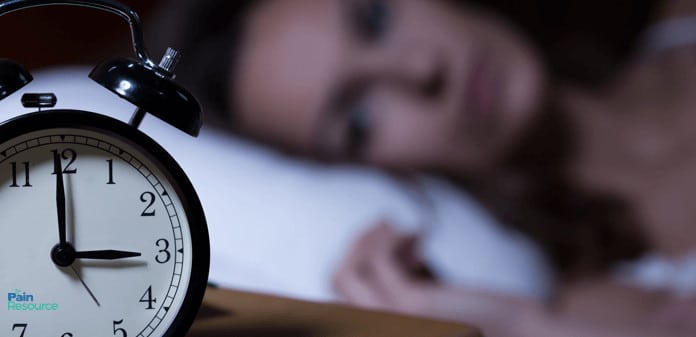Getting a good night’s sleep can be a difficult task when you live with chronic pain. Many people report that their pain is worse at night, which can cause sleepless nights.
According to the National Sleep Foundation, Americans who live with chronic pain have, on average, a 42 minute sleep debt. In comparison, there’s no overall sleep debt for people who do not have chronic pain.
In this post, we’re going to dive into the connection between chronic pain and sleep, and what you can do to overcome sleepless nights.
Pain Plays a Key Role in Disrupting your Sleep
There are fewer distractions at night, which can sometimes make you feel like your pain is even worse at night. Having trouble falling asleep is one of the most reported sleep issues, followed by waking up during the night and waking up earlier than desired. Additionally, many people with pain wake up not feeling well-rested, indicating they did not enjoy a restful night’s sleep.
The most common type of chronic pain is back pain, and more than half of individuals with back pain report that it significantly interferes with their sleep. Disrupted sleep, in turn, can exacerbate your chronic pain symptoms, making the sleep-pain cycle feel like a never-ending frustration.
Sleepless Nights Affect your Life
Not getting enough sleep at night affects your mood, energy level, immune system, mental focus, physical coordination and more. 50 percent of people who live with chronic pain report that sleep difficulties interfere with their work. In a nutshell, lack of sleep has a negative impact on your overall quality of life.
How to End the Sleep-Pain Cycle
Getting a good night’s sleep when you live with chronic pain is not an impossible task. In fact, according to the National Sleep Foundation, Americans who are motivated to get enough sleep reported sleeping 36 more minutes per night. Making sleep a priority is an important first step.
Here are a few things you can do to help you get a better night’s sleep:
- Timing: Try to wake up and fall asleep at the same times every single day, even on the weekends.
- Visualization: Visualization is a powerful tool in combatting chronic pain, and can be particularly useful when you’re having trouble falling asleep. Practice visualization therapy to distract yourself from the pain at night.
- Meditation: Practicing yoga or meditation before bed can help to reduce stress and clear your head.
- Sleep Medications: If you have a severe problem falling asleep, you may want to speak with your doctor about trying a medication that helps you fall asleep easier.
- Tea: Chamomile tea is a natural way to help your body feel tired and restful.
- Turn off the TV: Watching a TV screen or looking at your phone can actually keep you awake at night. Instead, try reading a paper book or magazine as you fall asleep at night.
- Visit a sleep clinic: If you can’t seem to get a better night’s sleep on your own, ask your doctor about visiting a sleep clinic, where they can help you get a more restful sleep.
Using these tools to help you get a better night’s sleep will help you improve your overall quality of life.
Do you still have questions about Chronic Pain and Sleep?
Comment below or email us at info@painresource.com with your suggestions for future articles.
Are you on Facebook?
Join our online community by clicking here.
